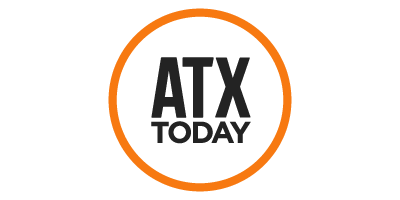Kenny Vaccaro has had a busy year.
Since retiring from the NFL last December, the former football player for the Tennessee Titans, New Orleans Saints, and Longhorns, has launched his own eSports company, opened a high-end South Congress gym, and kickstarted a clothing line.
We’re tired just thinking about all those projects, but Vaccaro doesn’t plan to slow down anytime soon.
Vaccaro’s new Konnect store will open in a 3,500-sqft location at 1400 S. Congress Ave. early next year, and additional locations for his Kollective gym are in the works. Meanwhile, his eSports teams — called G1, or Gamers First — continue to compete in Halo and Destiny.
We toured Kenny’s gym, store, and eSports facility and sat down with him to learn more about his plans in Austin.
This piece is part of our ATXtoday Q+A series. Do you know someone we should interview? Nominate them here. This interview has been edited for clarity and brevity.
When did you first start getting interested in eSports?
Honestly, for me it’s more about gaming. I didn’t even know about eSports until probably 10 years ago. But when I was 4 years old, my brother and I used to game, kind of for escape purposes. Growing up like the way we did, we struggled, you know, but we just always enjoyed [gaming]. There was so much dopamine that I got from it that I just knew that it would be something that I would do for life.
What games did you play as a kid?
Runescape, Crash Bandicoot, Mortal Kombat. Sega Genesis, Sonic, Spyro … All the OG games.
And what do you play now?
Right now I work every day, but when I was gaming every day not too long ago, [I played] Halo, Apex, Call of Duty, Elden Ring — that’s like a nerdy medieval game, I love medieval.
When did your love of video games transition into seeing eSports as a business opportunity?
[I was trying to be a streamer], but I was [also] playing in the NFL, trying to be the best pro I can be, right? You gotta give a lot of your life to it. How are you gonna have kids and then go home and try to be a streamer too? Because you got to commit your life to that. So I’m like, you know what, if I want to stay around it, let me see if I can make a life on this side.
But that wasn’t the only catalyst. I was in gaming and in other eSports orgs, but I got in and saw what they weren’t doing, that I could do some things better. And I literally just said to my partner Hunter [Swensson], I was like, “Hey, let’s do it on our own.”
In football, I was always talking about how it’s bigger than me. It’s about my teammates. It’s about my family. It’s about the employees around me. … When you walk through life, and you’re going through certain situations, that’s how I’ve always been. I think about everybody else and not just myself. So “It’s bigger than us” is like our “Just do it.”
It sounds like this all happened really fast. What has the last year looked like for you?
Last year has been just constant learning, growing, mentoring, constant business calls, sponsorship goals, trips to compete in Halo … It’s just been wild. It’s just been crazy. I’ve been so busy. I don’t have time to think about football. Like I don’t think about it at all. I don’t miss it, not even a smidge.
It’s weird being on the business side, as far as being in a leadership role and understanding certain personalities and how to manage that. … Leading by example is a big thing for me, because hopefully it inspires other people.
What do you think you’ve learned in the last year, since you made this big transition and jumped into this new endeavor?
So many things. Like I said, that was a big thing, being in a leadership role. Hierarchy, too, just understanding people have roles and bosses. Because I never consider myself like, your boss. It’s like, we’re all on the team. … But you need that in business, you need that structure.
I think sometimes people try to put a timeline on goals and they don’t really have to. We all have the same 24 hours. I’m not saying I’m an expert, I didn’t go to Red McCombs School of Business … it’s not like you have to have this background. I just did a lot of listening. That’s where my growth came from. I understand that I don’t have all the answers. It’s the best way for me. The main thing I learned is, I have so much more purpose other than sports.
Aside from being a former Longhorn, what drew you to Austin as the place to start this business?
When I left the NFL, I felt like I could have played two or three more years. But I knew, I just felt Austin shifting … I just knew the time was right.
Plus, all the connections [here]. Being a Texas Ex is a big thing, a lot of people go to Texas because of that. They don’t even know what they’re going to do after school, they just know they’re gonna get a job because most likely somebody in that company high up, who hires you, is possibly going to be a Texas Ex. … But especially as a football player, I met a lot of good people, made a lot of good relationships, and that’s allowed me to navigate and move differently than I would in any other city.
And UT has a new eSports lounge. Do you feel like Austin is seeing a growing eSports scene?
People don’t know this. Austin has some of the biggest streamers in the world, they all live here. But for eSports, there’s no work here at all. I wanted to plant my flag … everybody’s gonna flood here eventually.
It’s us and Tribe, they’re mobile gaming, Call of Duty. There’s nobody else here, but there’s a lot of big top streamers. OTK, they have hundreds of millions in reach, they’re up north in Cedar Park. SypherPK, one of my good friends, one of the biggest Fortnite streamers in the world. … So there’s a lot of people in Austin, people don’t even understand.
So you’re trying to get it on the ground floor before it starts.
It’s already started now. By the time everybody decides to get here, it’s too late.
Do you feel like eSports is still trying to establish itself in Austin and in the US?
I don’t know if you saw the League of Legends [World Championship opening ceremonies] with Lil Nas performing. It was ridiculous, better than the Super Bowl. But, where’s that at, though? League of Legends is big where? Asia. … That emphasis is slowly starting to make its way to the United States.
So you feel like you’re seeing a lot of change in the industry. How is that affecting the way you’re building your business?
I’m placing myself at the forefront of change. There’s a lot of things that we’ve already done that nobody’s ever done. Some of the human optimization stuff we do with our pro players — like taking my routine, my regimen as an NFL player — because I was a pro player, I paid attention to what I ate, slept, things I put my body to recover, and nobody really does it in esports like that. We already started.
Gaming’s about inclusivity, being authentic. You know, [the fans] gotta feel you, they got to know that you’re really in this with them. If you do that, you can captivate a whole audience, a group of people. That’s why streamers convert at the rate they do. … And that’s why you see a lot of these big massive brands pouring money into marketing and gaming and eSports, because they understand the type of buying that those fans give to the creators.
Can you talk a little bit more about what you’re doing for mental and physical health on staff?
Health is wealth, you hear it all the time. I mean, gaming is so much about cognitive performance. … Why not do those things as a pro player? Why not optimize your body? If you wanna make more money, do that. If you want to just live a better life in general, do these things, have a routine. And I think the quicker that eSports players, pro players do this, the more the world will be open to consider truly calling them athletes.
That stigmatism still kind of overshadows it as just being lazy, and it’s not a real sport. Yes it is, because if I go against my pro players, it’s not even close. There’s a skill gap. And people don’t need to understand that you can’t do what they do, no matter how much you train. They’re born with a gift. And the quicker this space starts being more structured, the quicker the world will pay more attention and respect it at the level it needs to be respected.
What do you want Austinites to know about eSports?
Just the negative connotation. There doesn’t need to be one. Gaming helps me with my anxiety, it helped me escape from growing up poor and not really having much to look up to. … It’s therapeutic, and it’s not harming your body like some of these drugs do. I met some of my best friends through gaming, the other founders of the team, I met them online from gaming.
I mean, everybody likes to game, even moms playing on their phone. I remember playing Brickbreaker, Snake, Candy Crush, that’s just a game. You know, that’s just part of life. We’re all players, right? So I just think that you can fight it all you want, but that is where the world’s going, that’s what they care about, whether you like it or not.
And you can connect with people all over the world. You can’t really do that in too many other [ways]. It’s special. I mean, especially with the digital transformation in the world.
The positive [impact] that you can have on people as a content creator, or somebody streaming, that in itself is saving a lot of people from anxiety, depression … So, it’s bigger than just the revenue and money that’s going into gaming. It’s a culture that’s really shaping the world.















